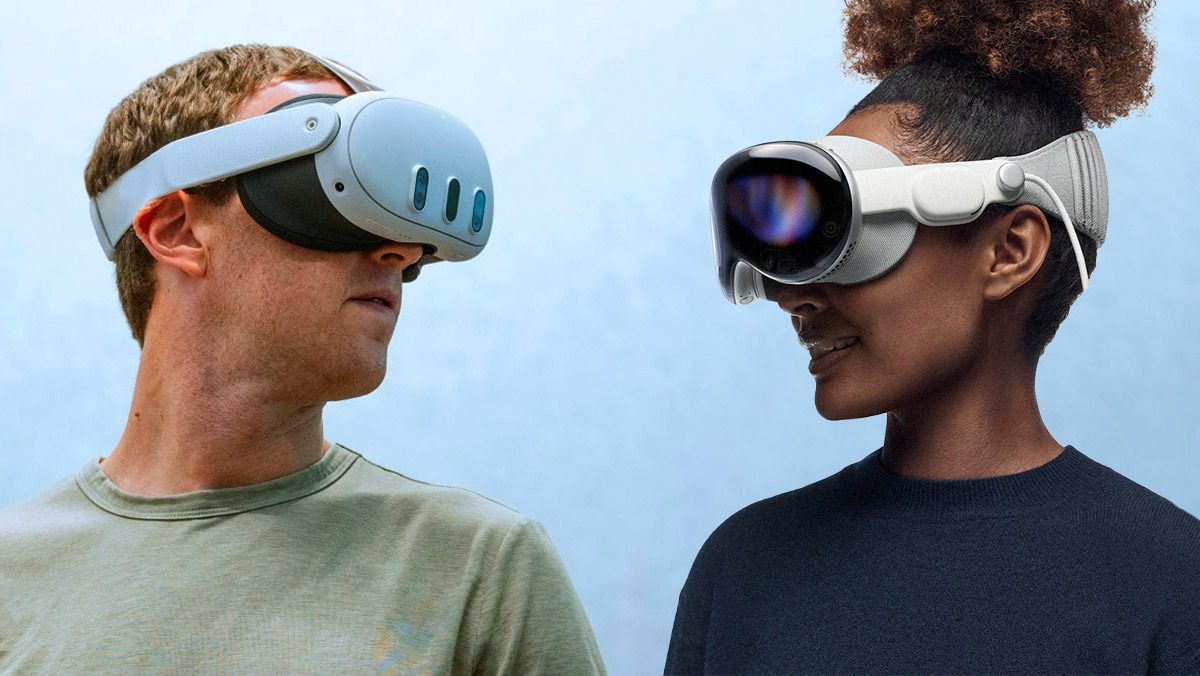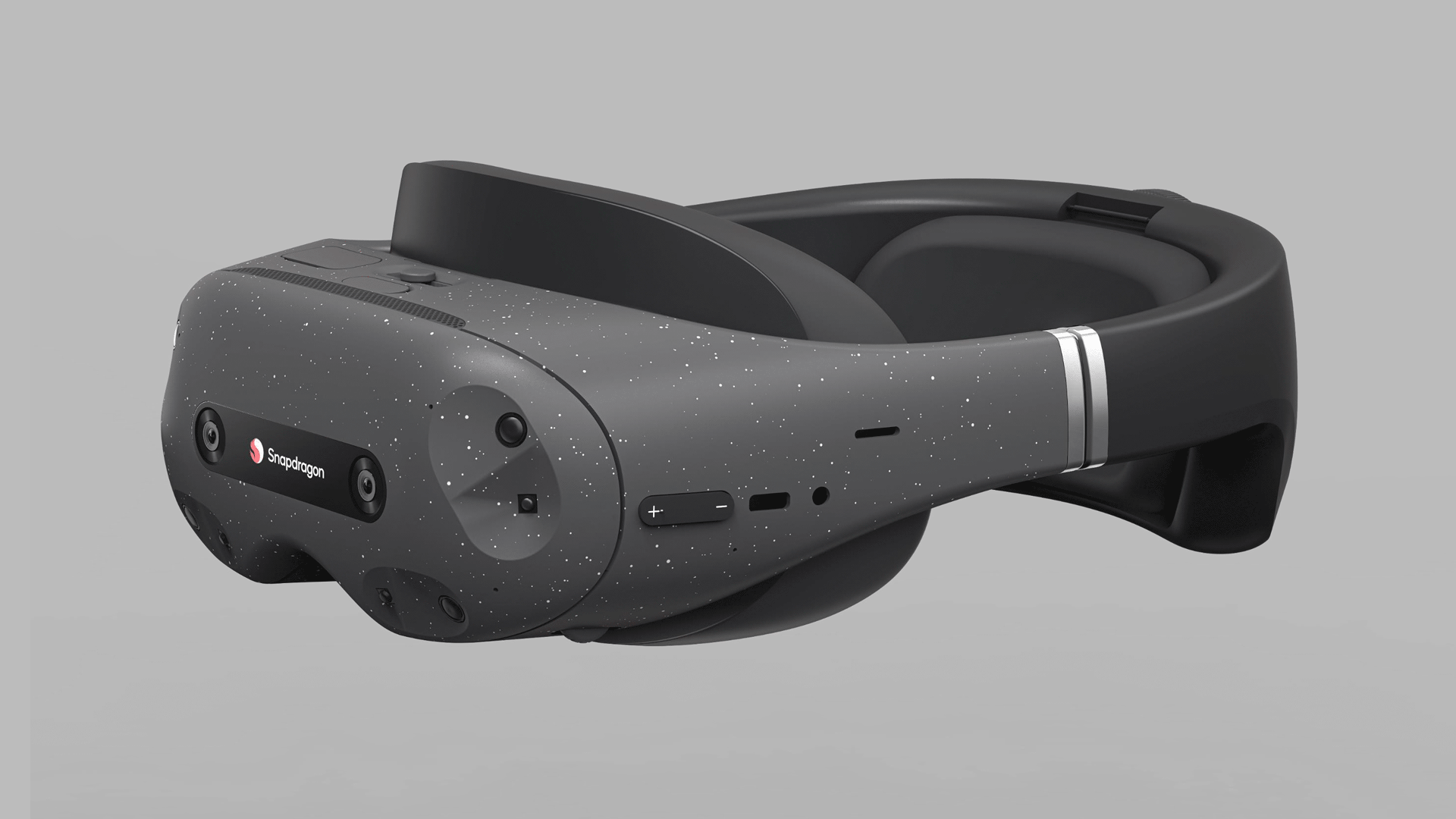Samsung and Google have partnered to create an XR-ready headset. However, the South Korean tech giant isn’t revealing what we can expect. Vision Pro, despite its $3,500 price tag, has proven that expensive and big is fine as long as it can attract diehard fans through compelling hardware and better ecosystem integration. Samsung might not be able easily to replicate that recipe, which is a trademark Apple one. Google may be the answer, but only if it can commit. Meta and Apple are forming a binary.
You cannot talk about consumer XR without mentioning Meta. The social media giant has undoubtedly been dominating the standalone segment ever since it released Quest in 2019. This leaves would-be competitors with two options: either they cater to enterprise, or stay in markets that Meta won’t go to. This early lead gave Meta plenty of time to develop a large content library. It also made Quest a popular platform for XR developers. At seven times the price of Quest 3, Vision Pro isn’t really a direct competitor in terms of cost-performance, but it appears Meta is gearing up anyway to deal with the future threat of successive Apple headsets.
Image courtesy Meta, Apple
Meta CEO Mark Zuckerberg drew some fairly clear battle lines in a recent video

although a binary is now available for XR fans. For now, Apple is positioning Vision Pro as a general computing device thanks to its interconnected ecosystem of iOS apps and services, while Meta is at the lower-end of the spectrum with its console-like Quest 2 and Quest 3 headsets, both of which are subsidized to encourage app sales–priced at $250 and $500 respectively.after trying Vision Pro himselfWhile there’s some definite overlap in functionality, this leaves some pretty weird territory for Samsung to enter in the near term. Meta has its games, and Apple has their ecosystem. Samsung doesn’t really have either.
Samsung’s Balancing ActAt this point, it seems unlikely that Samsung can replicate either Apple or Meta’s specific way of doing things when it comes to releasing a standalone XR headset. Meta has invested in XR over the years building out its console-like Quest platform, meanwhile Apple has been cooking up Vision Pro
to integrate seamlessly with its wider hardware ecosystem.
While Samsung’s headset is reportedly
, we don’t precisely know what that means: Samsung could be hoping to undercut Vision Pro’s $3,500 price point with similar MR hardware, or serve up something closer to the ostensibly soon-to-be discontinued $1,000 Quest Pro, which didn’t find the footing Meta hoped for despite an excellent content library.tens of billions of dollarsWhat we do know is the company is working with Google to provide software, and Qualcomm for its XR chip expertise. To boot, last month Qualcomm showed offover the past decade made in partnership with Goertek which could point to the sort of features to expect from Samsung, as the company is using the chip-maker’s new Snapdragon XR2+ Gen 2 processor.
Qualcomm Snapdragon XR2+ Gen 2 reference | Image courtesy Qualcommslated to compete with Vision ProThe Qualcomm reference headset includes eye-tracking from Tobii, support for 4,300 x 4,300 resolution per-eye at 90Hz, 12 concurrent cameras, pancake lenses, hardware IPD adjustment, microphone array, 3.5mm headphone port, and Wi-Fi 6/6E/7. It’s not that Samsung will have all of those features. But it is possible with Snapdragon XR2+ Generation 2. Samsung is expected to offer competent hardware. Samsung, despite not having its own consumer XR platforms, has created PC VR headsets, and smartphone-based Gear VR, which was the basis for Meta Quest and Oculus Go. Google may not have the resources to help build the hardware-agnostic VR platforms that Daydream promised when it released its last standalone
at the end of 2018. Google could certify the headset to bring a massive catalogue of Android apps to Samsung’s headset by default like Apple did with its iOS apps, but then again, it might not, which could hobble Samsung’s headset and rob it of an early start as the true Android competitor to Vision Pro. a new reference MR headset– – — – –

could
do to win a steady place between Apple and Meta is probably very different from what it
will killed its home-grown Daydream platformdo. I expect the company to release great hardware, but it will not be able to compete with Meta or Apple on a meaningful level in the near future. Samsung will be able to learn from the experience and determine where they fit in the market. However, it is unlikely that Google would co-opt them into launching a Daydream product. Valve is widely rumored to be working on its own headset, codenamed ‘Deckard’, which recently was the subject of a meme-fueled website that looked to troll VR hopefuls with the release of gutted its AR hardware team earlier this year.Daydream headset with LenovoWill Samsung offer a compelling third option in the gulf between Meta and Apple? Are you waiting to see what Valve does next? Comment below to let us know!